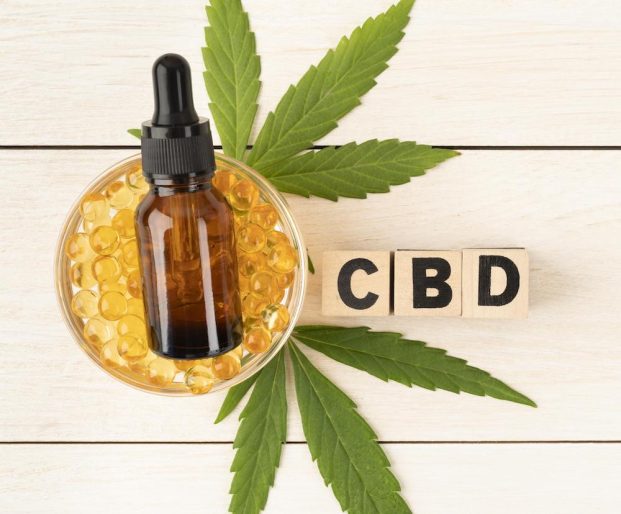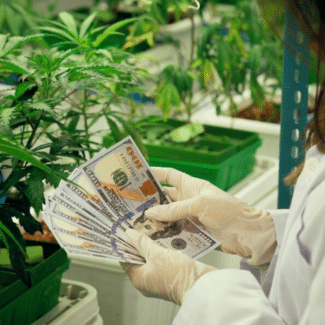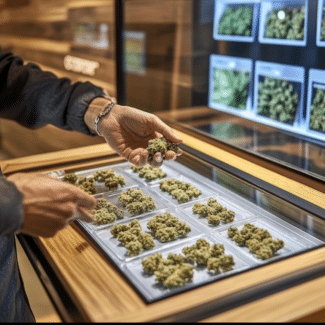In recent years, you’ve likely seen at least one headline or banner ad for a CBD superfood, wellness product, or infused pillowcase. It seems this cannabinoid came out of nowhere and went directly into the mainstream. There are a lot of claims made about CBD — but how well do we understand this compound, and what does the research actually say it can do?
What to Know About CBD
CBD is short for cannabidiol, and it’s one of over 100 cannabinoids found in the cannabis plant. (A cannabinoid is a chemical compound produced almost exclusively in the cannabis plant.) CBD is the cannabinoid that’s most abundant in industrial hemp and the second most abundant cannabinoid in medical/ recreational cannabis.
Like all cannabinoids, CBD interacts with your endocannabinoid system (ECS), a complex system of receptors in every organ in your body. Your ECS is responsible for keeping your body in homeostasis, or a state of balance, and touches nearly every biological function you have. This interaction with your endocannabinoid system is what produces the effects CBD has.
CBD quickly became mainstream after it became federally legal, thanks to the 2018 Farm Bill, which legalized industrial hemp and cannabidiol products with less than .3% THC. CBD gained additional status when the FDA approved Epidolex, a medication that includes CBD and can treat seizures.
Common CBD Benefits and Uses
While CBD isn’t intoxicating like THC is, that doesn’t mean it’s not bioactive; it still affects your body. In terms of cannabis research, CBD is a widely studied molecule with a healthy body of human, cell, and animal trials.
Researched benefits of CBD include:
- Anxiety. CBD has anxiolytic properties, and low doses can help reduce anxiety levels.
- Pain relief. CBD has analgesic (pain-relieving) and anti-inflammatory properties that can help reduce pain and inflammation throughout the body.
- Depression. CBD has anti-depressive effects that work alongside the anti-anxiety effects.
- Sleep. Low doses of CBD can promote wakefulness, while high doses of CBD can increase the amount of time you spend asleep.
- Skincare. In addition to having anti-inflammatory effects, CBD has several effects that make it a promising acne treatment.
How CBD Impacts the Wellness Space
As the body of research behind CBD grows, so does its application in mainstream society. The possibilities for CBD are seemingly endless — everyone has an endocannabinoid system, so it would stand to reason that most people can benefit from CBD.
In recent years, public opinion toward cannabis has done a complete 180, and it’s more widely accepted now than ever before. You can find CBD products in supermarkets, hemp stores, dispensaries — even gas stations are hopping on the CBD trend.
And why not? Using CBD isn’t limited to the cannabis industry; it’s made its way into medicines, topicals, tinctures, capsules, oils, honey, and even beverages. CBD use is safe and has been proven to reduce pain, help people sleep better, feel less anxious, and generally improve day-to-day quality of life — who wouldn’t want that?
Sure, the wellness industry is no stranger to seasonal trends. But the more research surrounding cannabis, the more cannabinoids will make their way into the mainstream alongside THC and CBD, further legitimizing their use.
Challenges CBD Companies Face
CBD is no fad — it’s here to stay. CBD is not intoxicating so it can be used more frequently by a broader range of people. And while it doesn’t need to be in everything from socks to pillowcases, there are plenty of simple applications where people can benefit from CBD. However, CBD companies face plenty of challenges.
Product Quality
The main challenge CBD companies face is product quality. With little to no standardized regulations, everyone from honest entrepreneurs to snake oil salesmen can sell “CBD” products — even if these products contain little to no actual CBD.
For example, if a cannabis-curious consumer tries a bad CBD product, it may forever turn them away from the cannabinoid. Companies making legitimate, valuable CBD products can prove this by providing a third-party certificate of analysis, which are the lab results from the product tests.
Market Language
Companies also face the challenge of the marketing language. How cannabis companies talk within the industry is not how consumers talk — when was the last time you heard someone say “broad-spectrum” casually in conversation? Providing education around cannabis terms is key to helping your customers understand the differences between products — and why yours stands out.
Regulatory Compliance
As with any business in the cannabis industry, CBD companies also have to deal with regulations. While CBD is federally legal, there is still a myriad of federal, state, and local regulations to sort through and understand. Some jurisdictions only allow CBD, some don’t differentiate between cannabinoids, and others want nothing to do with the plant entirely. And things only get more complicated if you’re working with other cannabinoids outside of CBD.
Risk Management
And, of course, there’s risk management. Producers of cannabinoids like CBD can often find themselves in a legal grey area — are your products insured as cannabis or hemp? How do you cover your assets while complying with federal, state, and municipal regulations? Do you only deal with CBD, or have you branched into other minor cannabinoids like delta-8?
Cannabinoid-specific policies can get tricky since there is no consensus on the plant from state to state or federally. You don’t want to find your business boxed in by language in your insurance policy that limits the cannabinoids you can work with. That’s why it’s vital to work with an insurer who understands the cannabis plant and the regulatory pitfalls that cannabis businesses have to tread.
The Future of CBD Wellness Products
Every year, more states come online with recreation and medical cannabis programs, so the market for CBD wellness products is only expanding.
AlphaRoot is proud to support growth in the CBD space, a space we see as an extension of the current cannabis industry. Since CBD is already federally legal, this section of the industry is growing at breakneck speed. This isn’t a fad — CBD is rapidly becoming an integral part of the cannabis industry and all the other industries cannabis touches. The more we learn about this incredible plant, the more we’ll see CBD integrated into the medical, mental health, wellness, and retail industries.
Protecting your cannabis company can seem confusing; however, we’re a full-service insurance brokerage working with carriers worldwide to offer you the best coverage possible. We’re here to help! Please reach out to us today by emailing [email protected] or calling 646-854-1093 for a customized letter of commitment or learning more about your cannabis insurance options.






